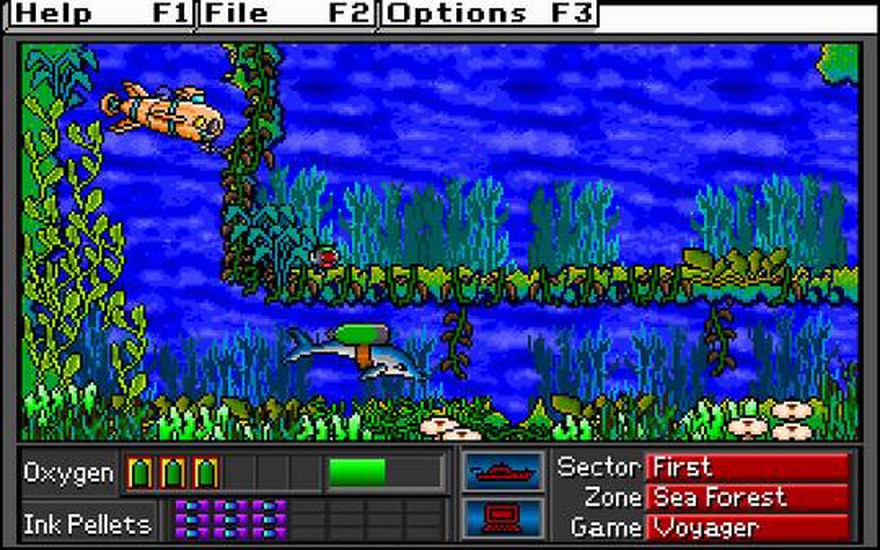
The Learning Company and SoftKey Multimedia
Excelsior!
Humanity shares a curiosity about the world around us! Chess isn't our only curiosity.Opinions below are my own, not those of Lichess. It's my blog.
This week I watched many videos, trying to understand:
- Safety: What risks do the crew face, and what can be done to maximize chances of a successful rescue?
- Psychology: Why do people take risks, both individually and collectively? What does it mean to be human and take responsible risks, and how can we learn more about ourselves & about others' vast experience?
- Science: What have we learned from missions over the years, and what lessons can we learn going forward? What questions are the most constructive questions to ask about these and about any other scientific endeavor, as well as about media & social media coverage of science?
Let's start to examine this...
Safety: About 2 hours after the Titan (submersible) departed its submarine en route to the Titanic site, there was radio silence. It's difficult to know what we know at present; in 2021, a similar phenomenon occurred and Titan surfaced and was quickly located and recovered with crew. Yesterday, the U.S. Coast Guard advised that a unified command is doing everything to locate the vessel and determine next steps.
What's possible?
- Titan has surfaced somewhere, or it is surfacing now, and we simply haven't located it yet. This would be a best-case scenario and we'd have hoped it to happen already, or we'd hope the crew are selfishly enjoying the journey they paid for while we struggle to communicate with them. In this case, to maximize chances of a successful rescue we "simply" need to locate the craft, wait for it to surface, and open it.
- Titan has imploded, immediately killing everyone on board. If this is what transpired, then there is no remaining urgency and we can take our time locating the craft.
- Titan is unable to surface of its own ability and needs to be rescued by remotely-operated vehicles. While U.S. Coast Guard-led unified command may be unwilling to speculate further... well, even if a rescue is feasible politics could be a factor complicating coordination of potentially-secret marine warfare capabilities. Who knows? I would very much like to know, but also I don't want the burden of concealing military intelligence at this time.
Why do people take risks?
This should be the subject of a subsequent blog post; surely VR could be just as exciting, and less costly in terms of human lives.
What have we learned from missions over the years, and what lessons can we learn going forward?
There are about 10 craft certified to a well-known safety standard; Titan is the first experimental craft (at least that I can find) for such a depth. Admittedly, maybe somehow regulations could be eased over time as we know more, however public reaction to this event will call for stricter regulation, no doubt... let's look back in time a bit.
From the R.M.S. Titanic maiden voyage, we learned:
- An ounce of prevention is worth a pound of cure. Many, many things could have been done to make this entire voyage safer, from charting a course in daytime and/or high visibility to having more lifeboats available.
- Safety regulations, safety ratings, etc. don't keep pace with people's passion for adventure. In theory requiring businesses to carry insurance could help better align incentives, if such insurance could be easily understood and could also be affordable. In practice... well, visibility was low and other ships weren't prepared to rescue its passengers, so even if we could go back in time and require insurance, can you imagine an insurance policy actually discouraging dangerous behavior, or actually compensating victims' families?
What lessons can we learn going forward?
- Risk estimation isn't flashy and people don't like to think about it before risks are taken. (I should write at length about the bikeshed effect... this affects chess players too!)
- People seem to enjoy talking about risk-taking after risks are taken, perhaps in an attempt to better understand human behavior in all its complexity & to better understand the world around us. Of course it's easy to balk at others' questionable decisions, but it's more interesting to make even some vain effort to see the world from another person's perspective since you might actually learn something.
As I see high-quality articles and videos I will update this list.
AP - Rescuers make a last desperate push as final hours of oxygen on the missing Titanic sub tick down
CBC - This submersible takes passengers to the Titanic ... and it has a toilet
https://youtu.be/ClkytJa0ghc
https://youtu.be/-rQBVbmwSbI
https://youtu.be/Zvt32bOZ68A
https://youtu.be/2jJ_SSU-ocU
https://youtu.be/rThZLhNF_xg
https://youtu.be/y9szRbN1V8o
https://youtu.be/0iHwJxSqBlA
https://youtu.be/LEBCc-Qpilw
https://youtu.be/_j6tO0kWTBk
https://youtu.be/o_uaiy1SSNM
https://youtu.be/-u0UeY4epuQ
https://youtu.be/vXAyJWeI-f0
https://youtu.be/CfsBNAR5HTA
https://youtu.be/o9KUZ-zEdoU
Editorial
I am human and as such I have opinions. Yes, we know there are about 10 craft certified by experts to a depth of 4,000 meters. OceanGate took a cost-saving approach as you can see in the video above. I watched one video stating that the viewport of the craft was manufactured to a lesser standard. We also know that this craft has descended before, and that crew are essentially "bolted" into the submersible such that even if it surfaces, they will be unable to open the craft - BUT how was this bolting done and is the craft actually watertight?
We've sent Hubble Space Telescope into space and are awed by its stellar imagery. Tech. journalist Myke Hurley talks about Apple's new VR product. I pose a thought experiment for the reader: what if next time, a robotically operated vehicle is used, and mission specialists get to experience the Titanic from the safety of a certified submarine? There's nothing cowardly about valuing human life; for reputation or bragging rights purposes, you can say that you were actually there.
https://youtu.be/8081RGUkQ_I




